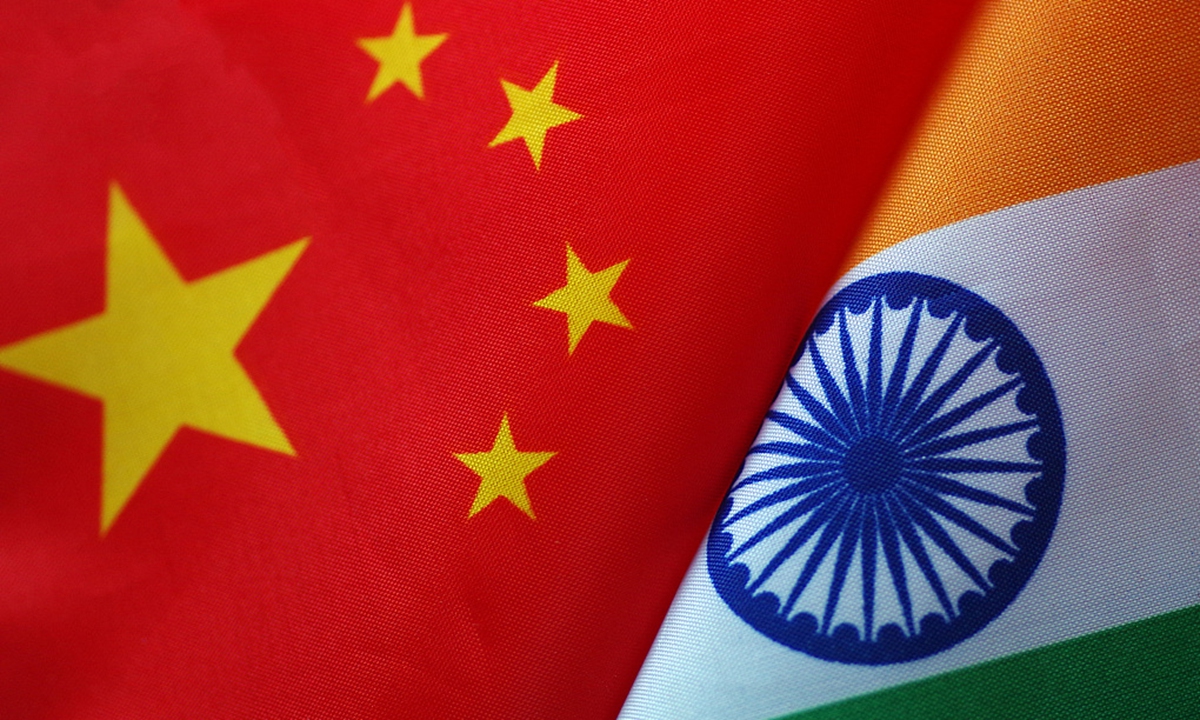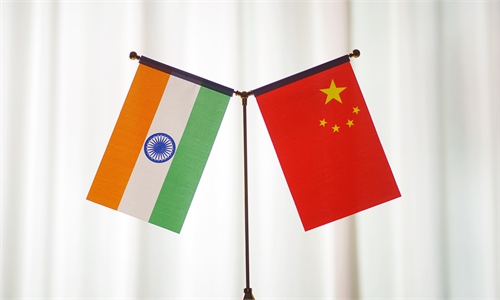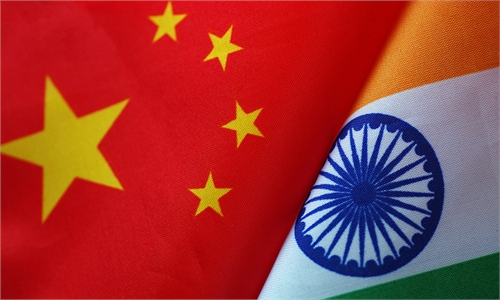China, India agree at latest commander-level meeting to work out mutually acceptable resolution of remaining border issues at the earliest

Photo: VCG
The resolution of the remaining issues along the Line of Actual Control (LAC) can help in the restoration of peace and tranquility of the region and enable progress in bilateral relations, China and India reaffirmed after a commander level meeting on Sunday, called by both as "frank and in-depth."
The position of China and India to narrow differences through dialogue to avoid the recurrence or escalation of conflicts indicates the upward momentum for China-India relations since the clashes at the Galwan Valley in 2020. However, it will take some time for the two countries to reach a solution both sides can accept, Chinese observers noted.
Building on the progress made at the last meeting on March 11, 2022, the two sides continued discussions for the resolution of the relevant issues along the LAC in the Western Sector "in a constructive and forward looking manner," according to a joint press release by China's Ministry of Defense late on Monday.
Indian media reports said that the meeting, held on the Indian side of the Chushul-Moldo border meeting point, the third commander level meeting of the two sides for this year, ran for 12 hours until 10 pm local time on Sunday night.
The two sides had a "frank and in-depth exchange of views" under the guidance provided by the state leaders to work for the resolution of the remaining issues at the earliest, the joint statement said.
In the interim, the two sides agreed to maintain the security and stability on the ground in the Western Sector, and to stay in close contact and maintain dialogue through military and diplomatic channels and work out a mutually acceptable resolution of the remaining issues at the earliest, according to the statement.
Although the previous two rounds of commander-level talks in 2022 did not achieve a major breakthrough, it is worth noting that both sides have insisted on relying on existing bilateral channels to resolve border issues through dialogue and communication, Qian Feng, Director of the Research Department of the National Strategy Institute at Tsinghua University, told the Global Times earlier.
Qian believes the "most dangerous" moment in bilateral relations has passed and China-India relations have been developing toward a positive momentum since the clashes at the Galwan Valley.
China-India relations gained a positive trend this year. State Councilor and Foreign Minister, Wang Yi, had in-person meetings with Indian Minister of External Affairs, Subrahmanyam Jaishankar, on March 25 during Wang's visit to India and on July 7 at the sidelines of the G20 foreign ministers' meeting.
Since March this year, China and India have maintained communication and exchanges, effectively managed differences and a move towards recovery has been shown in the overall bilateral relations of the two countries with common interests and similar legitimate claims, Wang said after the July meeting.


